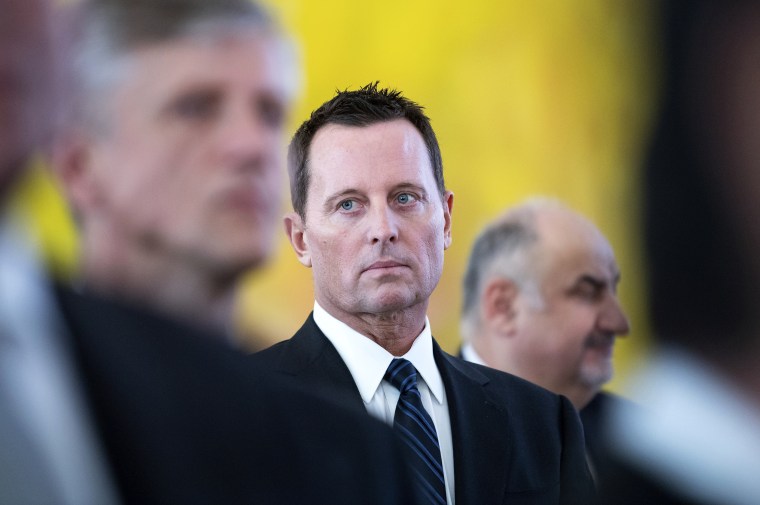As yesterday morning was taking shape in the nation's capital, Donald Trump thought it'd be a good idea to whine a little about the schedule on Capitol Hill. "There is another Russia, Russia, Russia meeting today," the president complained.
Whether Trump understood this or not, the "meeting" was actually a congressional briefing -- led by senior Trump administration officials -- on foreign election interference. It's a subject the president should be familiar with, given Russia's efforts on his behalf four years ago.
The gathering was also a sequel of sorts. Nearly a month ago, the New York Times reported that U.S. intelligence officials warned lawmakers in a private briefing that Moscow is once again engaging in election interference, and the Kremlin once again hopes to help Donald Trump. Soon after, the president started overhauling his intelligence operation, installing partisan loyalists in key positions.
And wouldn't you know it, yesterday lawmakers heard a different kind of message on the same subject. The New York Times reported:
Intelligence officials told lawmakers behind closed doors on Tuesday that Russia was not directly supporting any candidates as it tried to interfere in the presidential race, an assertion that contradicted an earlier briefing and prompted accusations from Democrats that the Trump administration was politicizing intelligence.
By all accounts, officials acknowledged Russia's ongoing interference efforts, but yesterday's message nevertheless departed from last month's message about the Putin government's pro-Trump motivations.
Lawmakers did not hear from acting Director of National Intelligence Ric Grenell -- who ostensibly oversees the U.S. intelligence community -- and according to the Washington Post, the Republican was apprehensive about "his preparedness to address sensitive subjects that tend to upset the president."
The article added that Grenell "asked Trump to be excused from the briefings because he anticipated pointed questions from Democrats about politically volatile subjects."
No Profile in Courage Award for you, Ric.
But the Times' article added an important angle to this that shouldn't go overlooked:
Before the day's briefings, Kashyap Patel, a former White House and congressional aide who moved to Mr. Grenell's office last month, met with intelligence officials and imposed limits on what they could tell Congress about foreign influence operations, according to two people familiar with the matter. Mr. Patel's comments struck some intelligence officials as an inappropriate politicization of the briefing.
Ya think?
If this reporting is correct -- and it has not been independently verified by MSNBC or NBC News -- intelligence officials not only tempered last month's message about Moscow intervening to help Trump (again), they also received instructions from a Republican partisan who allegedly imposed a cap on the kind of information lawmakers could receive.
The Times' article added that Kash Patel spoke to officials in the office of the director of National Intelligence (ODNI), and it's "not clear whether his directions were conveyed to other intelligence agencies."
A cynic might wonder what some of the president's allies hope to hide.
